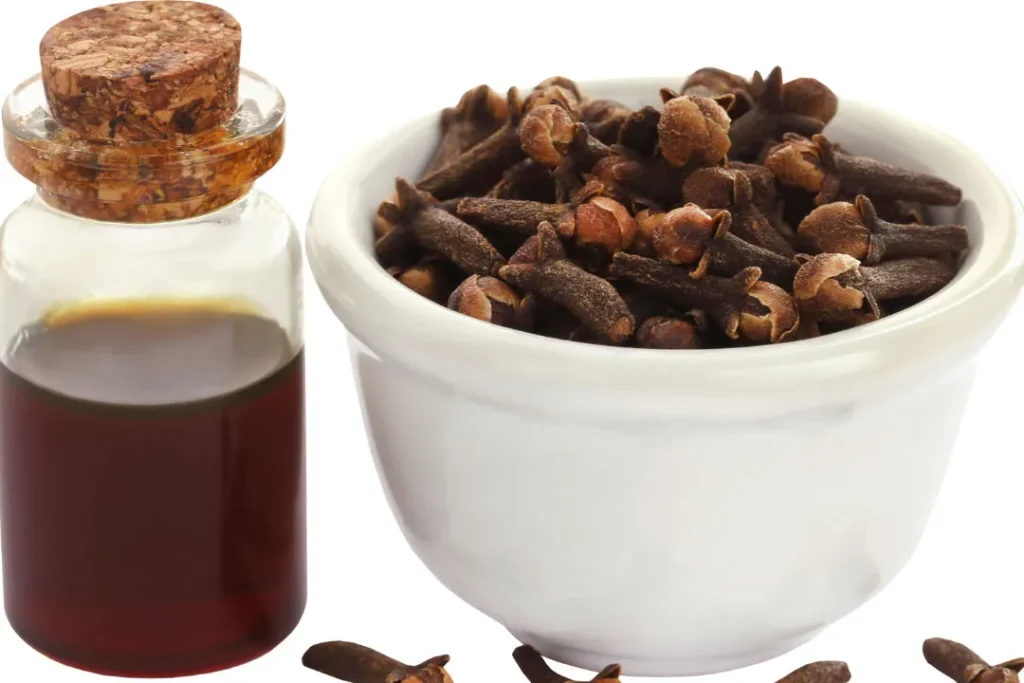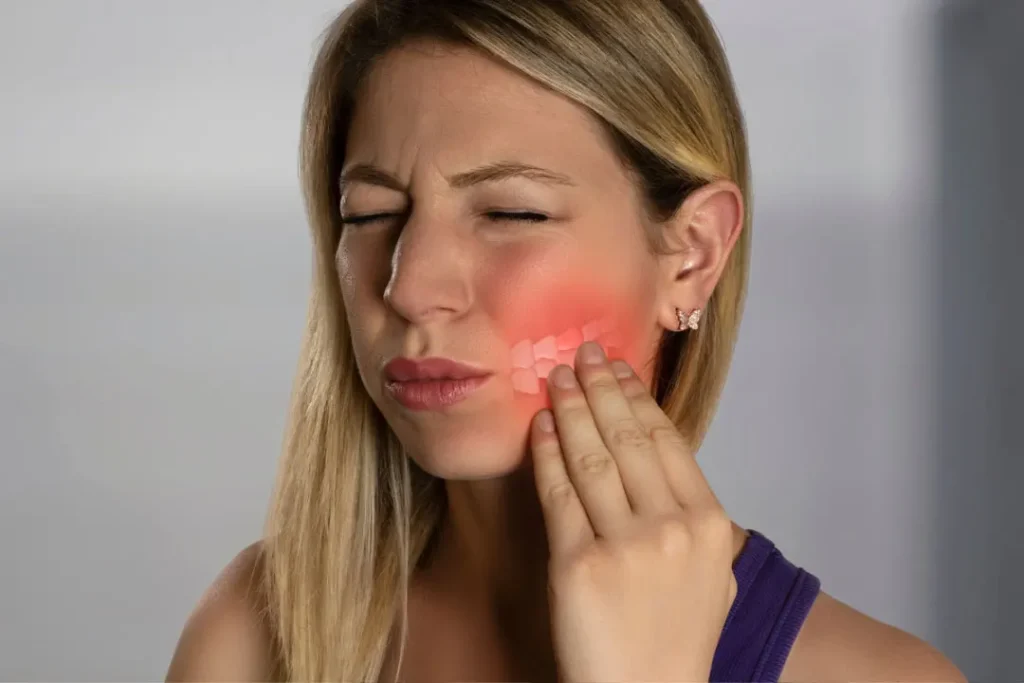The evergreen clove tree (syzygium aromaticum), from which clove is derived, has a long history of use in both cooking and medicine. Clove has been used in traditional medicine, perfumery, and a variety of international cuisines because of its potent flavor and aroma. This article explores the chemistry, potential health advantages, recommended dosage, possible side effects, drug interactions, and responsible use of this extraordinary botanical.
Maximize Health with Amazon’s Top Clove Oil Supplements for Vitality—Explore Now!

You May Also Like:
5 Great Nootropic Herbs for Focus and Mental Clarity
Cha de Bugre: Benefits, Dosage, Side Effects, Drug Interactions, and Other Important Information
Clove: Benefits, Dosage, Side Effects, Drug Interactions, and Other Important Information is an original (NootropicsPlanet) article.
Nature of Clove
The fragrant flower bud of the clove tree is known as a clove. Each bud has many chemical constituents that each contribute to its special qualities. Eugenol, which makes up between 70% and 90% of the essential oil extracted from cloves, is the most notable of these substances. Eugenol is a phenylpropanoid, which is what gives clove its distinctive aroma and many beneficial properties.
The antioxidant, anti-inflammatory, and antimicrobial properties of clove are attributed to flavonoids, tannins, and triterpenoids. Cloves also contain elements like calcium, iron, potassium, and magnesium.

Health Benefits of Clove
Historically, clove has long been valued for its therapeutic potential in traditional medicine, and recent scientific studies have begun to support some of these claims.
The phenolic compounds in cloves, primarily eugenol and flavonoids, give them strong antioxidant properties. They reduce oxidative stress and can potentially lower the risk of chronic illnesses like cancer, cardiovascular disease, and neurodegenerative disorders by neutralizing dangerous toxins in our bodies.
Effects on Microorganisms: Clove oil is an effective natural preservative and can treat many infectious diseases due to its antimicrobial properties. These properties fight against bacteria, fungi, and viruses.
Dental Care: Due to its analgesic, anti-inflammatory, and antibacterial properties, clove oil is used in dentistry. Eugenol works well as a local anesthetic and is helpful for periodontal disease, gingivitis, and toothaches.
Anti-inflammatory Properties: Eugenol is an anti-inflammatory compound found in cloves, and it inhibits pro-inflammatory cytokines. This makes it useful for treating inflammatory conditions like arthritis.

Chemistry
The potent phytochemistry of clove, with eugenol playing a key role, gives it its potential medicinal properties. Eugenol is an antioxidant that helps our body by scavenging dangerous toxins and lowering oxidative stress. Additionally, it demonstrates antimicrobial activity, which prevents the growth of different pathogens by impairing their metabolic and cell membrane processes.
The molecular level of inflammation is decreased by eugenol’s anti-inflammatory purposes, which involves inhibiting pro-inflammatory cytokines. Eugenol functions as a local anesthetic in the context of oral health, numbing our oral tissues and reducing pain.
Clove’s potential health advantages are promising. However, additional clinical studies are necessary to support these effects fully, specify ideal dosages, and outline potential side effects and interactions. The ongoing scientific study of this aromatic botanical may soon reveal even more of its potential, opening the door to fresh therapeutic uses.
Achieve Optimal Health with Amazon’s Top Picks for Clove Oil Supplements—Shop Now!

Physiological Properties of Clove
Cloves contain a variety of bioactive substances. Eugenol in particular, gives them their unique physiological effects.
Cloves have a significant amount of antioxidant properties. Eugenol, a potent toxin scavenger, is the main substance responsible for this effect. Free radical toxins are unsteady molecules that can harm our cells, speeding up cellular aging and the development of diseases like cancer and heart disease. The antioxidants in cloves assist in preventing cellular damage by disarming these damaging molecules. The antioxidant potential of cloves is further enhanced by flavonoids, another powerful antioxidant group.
Effects on Microbes: Cloves, particularly clove oil, have potent antimicrobial qualities. The primary component of clove oil, eugol, disrupts the cell membrane and the metabolism of bacteria, fungi, and viruses, preventing them from growing and multiplying.
Anti-inflammatory Effects: Tumor necrosis factor-alpha (TNF-alpha), interleukin (IL)-1, and IL-6 are examples of pro-inflammatory cytokines that are inhibited by eugol. Clove aids in the control of inflammatory conditions by inhibiting these inflammatory signaling molecules.
Effects on Analgesia: Eugenol is primarily responsible for the analgesic properties of clove oil, which have been used for centuries in dental care. Eugenol is used to temporarily relieve toothaches by numbing the area and by acting on the pain receptors or nerve endings.
Digestive Health: In traditional medicine, cloves have been used to improve digestion. Scientists claim that the eugenol in cloves stimulates the production of digestive enzymes, enhancing digestion, though the precise mechanisms are not fully understood.

Optimal Dosage of Clove
The ideal clove dosage as a dietary supplement depends on multiple variables, including your age, health status, and the condition you are treating. The recommendation in oral healthcare is to dab the affected area with a few drops of diluted clove oil. A typical dose of 250–500 mg of clove extract daily is usually advised for systemic health benefits. However, for recommendations on specific dosages, your healthcare professional should be consulted.
Elevate Your Health: Top Clove Oil Supplements on Amazon—Explore Here!

Side Effects of Clove
Although cloves and clove oil are generally safe when eaten in moderation, excessive consumption can have negative effects. These can include liver damage, gastrointestinal distress, nausea, diarrhea, and allergic reactions. The overuse of clove oil in your mouth can also cause oral tissue damage, sensitivity in your mouth, and even a loss of taste.

Potential Substance Interactions with Clove
The risk of bleeding may be increased by interactions between clove, eugenol, and anticoagulant/antiplatelet medications. They can also interact with drugs that the liver metabolizes, changing the way the drug behaves. Therefore, before beginning a clove supplementation regimen, if you are taking such medications, you should speak with your healthcare provider first.
Responsible Use of Clove
Despite its potential health advantages, clove should only be used in moderation due to its strong bioactive components. Growing synthetic eugenol supply offers a solution that prevents possible clove tree over-harvesting. Standardized extracts can also guarantee consistent dosing and positive results. To avoid toxicity or irritation, clove oil must be diluted correctly.
Clove:
Conclusion
Clove has been used hostorically for its many medicinal and culinary properties, and is still an important element used to improve and enhance our health and wellbeing today. If you are looking for a natural supplement to aid in your dental health, clove has been proven to be very beneficial. Using Clove for this purpose is great for pain relief, however there is still further research needed before using it as a supplement outside of dentistry. Be sure to always get advice from your doctor before trying it.
Transform Your Wellness with Amazon’s Best Clove Oil Supplements—Find Out More!

References:
- Clove extract inhibits tumor growth and promotes cell cycle arrest and apoptosis. Retrieved From: https://www.oncotarget.com/article/2094/text/
- Clove (Syzygium aromaticum): a precious spice.Retrieved From: https://www.ncbi.nlm.nih.gov/pmc/articles/PMC3819475/
- The application of clove extracts as a potential functional component in active food packaging materials and model food systems:Retrieved From:https://www.sciencedirect.com/science/article/pii/S2772502223000227
Important Note: The information contained in this article is for general informational purposes only, and should not be construed as health or medical advice, nor is it intended to diagnose, prevent, treat, or cure any disease or health condition. Before embarking on any diet, fitness regimen, or program of nutritional supplementation, it is advisable to consult your healthcare professional in order to determine its safety and probable efficacy in terms of your individual state of health.
Regarding Nutritional Supplements Or Other Non-Prescription Health Products: If any nutritional supplements or other non-prescription health products are mentioned in the foregoing article, any claims or statements made about them have not been evaluated by the U.S. Food and Drug Administration, and such nutritional supplements or other health products are not intended to diagnose, treat, cure, or prevent any disease.


